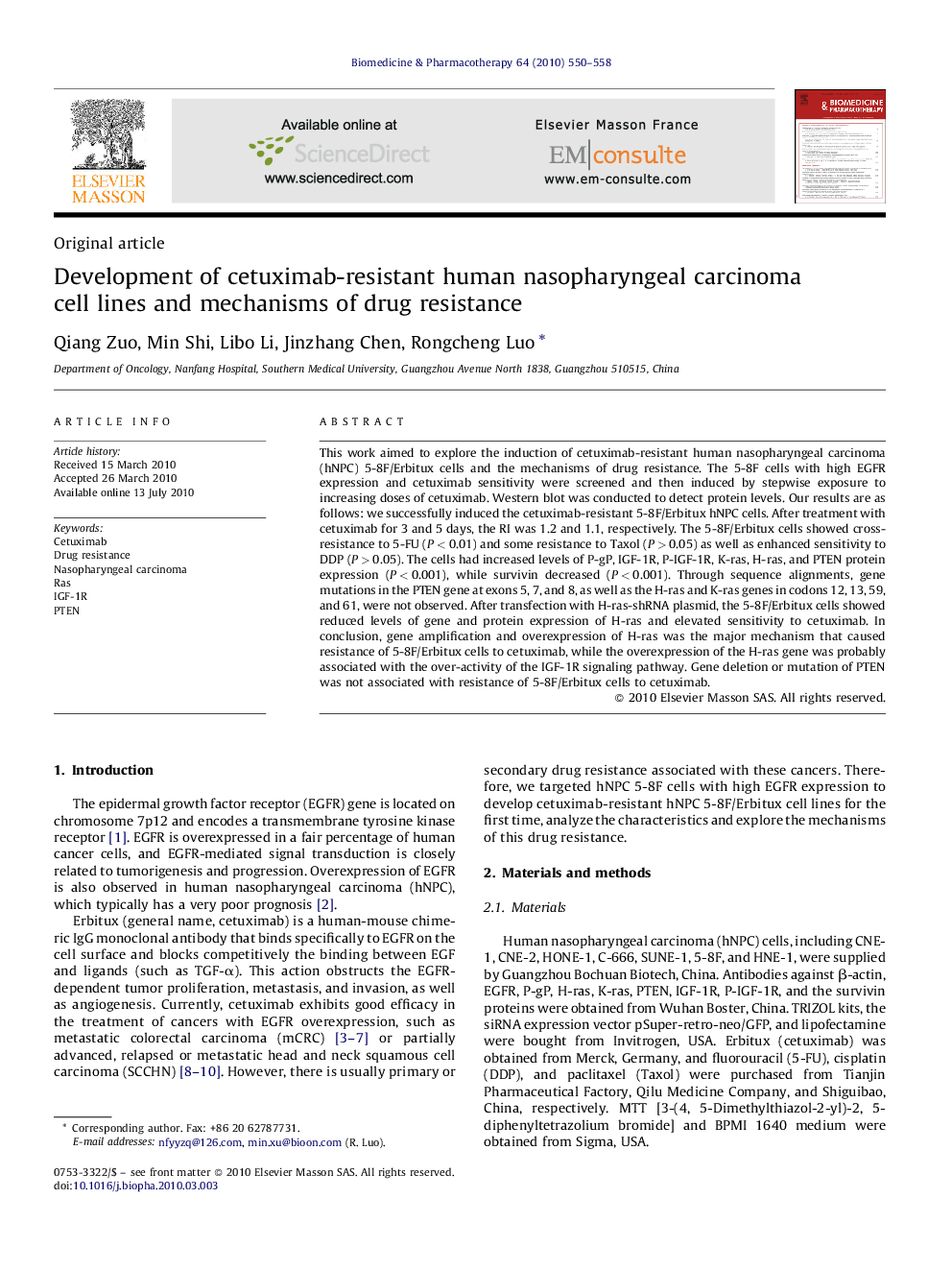| Article ID | Journal | Published Year | Pages | File Type |
|---|---|---|---|---|
| 2524865 | Biomedicine & Pharmacotherapy | 2010 | 9 Pages |
This work aimed to explore the induction of cetuximab-resistant human nasopharyngeal carcinoma (hNPC) 5-8F/Erbitux cells and the mechanisms of drug resistance. The 5-8F cells with high EGFR expression and cetuximab sensitivity were screened and then induced by stepwise exposure to increasing doses of cetuximab. Western blot was conducted to detect protein levels. Our results are as follows: we successfully induced the cetuximab-resistant 5-8F/Erbitux hNPC cells. After treatment with cetuximab for 3 and 5 days, the RI was 1.2 and 1.1, respectively. The 5-8F/Erbitux cells showed cross-resistance to 5-FU (P < 0.01) and some resistance to Taxol (P > 0.05) as well as enhanced sensitivity to DDP (P > 0.05). The cells had increased levels of P-gP, IGF-1R, P-IGF-1R, K-ras, H-ras, and PTEN protein expression (P < 0.001), while survivin decreased (P < 0.001). Through sequence alignments, gene mutations in the PTEN gene at exons 5, 7, and 8, as well as the H-ras and K-ras genes in codons 12, 13, 59, and 61, were not observed. After transfection with H-ras-shRNA plasmid, the 5-8F/Erbitux cells showed reduced levels of gene and protein expression of H-ras and elevated sensitivity to cetuximab. In conclusion, gene amplification and overexpression of H-ras was the major mechanism that caused resistance of 5-8F/Erbitux cells to cetuximab, while the overexpression of the H-ras gene was probably associated with the over-activity of the IGF-1R signaling pathway. Gene deletion or mutation of PTEN was not associated with resistance of 5-8F/Erbitux cells to cetuximab.
